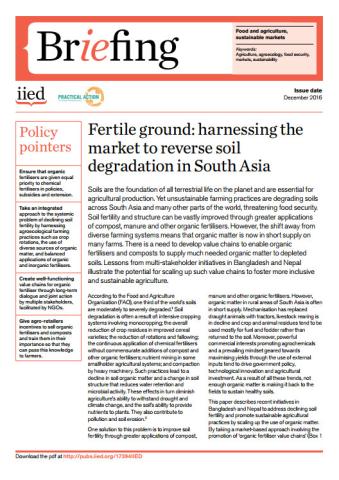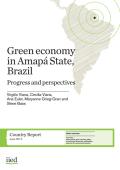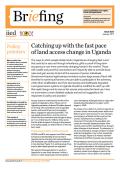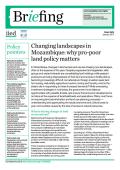Browse by:
Type
Sector
Country
- Afghanistan (1)
- Albania (1)
- Antigua and Barbuda (2)
- Argentina (1)
- Australia (4)
- Austria (3)
- Bahamas (3)
- Bahrain (2)
- Bangladesh (6)
- Barbados (2)
- Belgium (2)
- Belize (5)
- Benin (3)
- Bhutan (4)
- Bolivia (3)
- Bosnia and Herzegovina (1)
- Botswana (5)
- Brazil (14)
- Bulgaria (1)
- Burkina Faso (1)
- Cabo Verde (2)
- Cambodia (8)
- Cameroon (4)
- Canada (24)
- Central African Republic (1)
- Chad (1)
- Chile (3)
- China (27)
- Colombia (10)
- Congo (2)
- Cook Islands (5)
- Costa Rica (12)
- Cuba (1)
- Cyprus (1)
- Czech Republic (3)
- Democratic Republic of the Congo (3)
- Denmark (8)
- Dominican Republic (2)
- Ecuador (5)
- Egypt (3)
- El Salvador (1)
- Equatorial Guinea (1)
- Ethiopia (8)
- Federated States of Micronesia (7)
- Fiji (8)
- Finland (9)
- France (9)
- Gabon (1)
- Gambia (2)
- Georgia (2)
- Germany (10)
- Ghana (10)
- Global (1)
- Greece (2)
- Grenada (2)
- Guatemala (1)
- Guyana (1)
- Haiti (3)
- Honduras (3)
- Hungary (2)
- Iceland (4)
- India (31)
- Indonesia (27)
- Iran (1)
- Ireland (2)
- Italy (11)
- Jamaica (3)
- Japan (11)
- Jordan (5)
- Kazakhstan (5)
- Kenya (20)
- Kiribati (5)
- Kosovo * (1)
- Kyrgyzstan (4)
- Lao (7)
- Latvia (1)
- Lebanon (2)
- Lesotho (1)
- Liberia (2)
- Madagascar (6)
- Malawi (3)
- Malaysia (7)
- Maldives (7)
- Mali (4)
- Marshall Islands (6)
- Mauritania (2)
- Mauritius (3)
- Mexico (13)
- Moldova (1)
- Mongolia (7)
- Montenegro (2)
- Morocco (6)
- Mozambique (5)
- Myanmar (8)
- Namibia (4)
- Nauru (4)
- Nepal (12)
- Netherlands (10)
- New Zealand (5)
- Niger (1)
- Nigeria (3)
- Niue (6)
- North Macedonia (1)
- Norway (8)
- Pakistan (4)
- Palau (5)
- Papua New Guinea (6)
- Peru (7)
- Philippines (22)
- Portugal (1)
- Qatar (1)
- Republic of Korea (14)
- Republic of Moldova (1)
- Romania (2)
- Rwanda (3)
- Saint Kitts and Nevis (3)
- Saint Lucia (8)
- Saint Vincent and the Grenadines (1)
- Samoa (9)
- Saudi Arabia (1)
- Senegal (5)
- Serbia (2)
- Seychelles (1)
- Sierra Leone (3)
- Singapore (2)
- Slovakia (1)
- Slovenia (1)
- Solomon Islands (5)
- South Africa (10)
- Spain (2)
- Sri Lanka (7)
- Sudan (1)
- Suriname (4)
- Sweden (9)
- Switzerland (2)
- Tajikistan (3)
- Tanzania (11)
- Thailand (13)
- Timor-Leste (4)
- Togo (1)
- Tonga (2)
- Trinidad and Tobago (7)
- Tunisia (4)
- Türkiye (1)
- Turkmenistan (2)
- Tuvalu (4)
- Uganda (14)
- Ukraine (4)
- United Arab Emirates (1)
- United Kingdom of Great Britain and Northern Ireland (15)
- United States of America (24)
- Uruguay (1)
- Uzbekistan (7)
- Vanuatu (8)
- Viet Nam (16)
- Zambia (6)
- Zimbabwe (3)
Region
Theme
- Climate Change (249)
- Natural Capital (203)
- Development (120)
- Institutions and Governance (94)
- Indicators and Measurement (89)
- Circular Economy (75)
- Cities (73)
- Infrastructure (69)
- Risk and Resilience (53)
- Technology and Innovation (37)
- Consumption (31)
- Investment (30)
- Poverty and Equity (29)
- Standards and Regulations (28)
- Gender (26)
- Market Mechanisms (23)
- COVID-19 (20)
- Jobs (20)
- Fiscal Instruments (18)
- Trade and Supply Chains (15)
- Health (9)
- Government Procurement (8)
- Sustainable, Green, and Social Bonds (3)

Soils are the foundation of all terrestrial life on the planet and are essential for agricultural production. Yet unsustainable farming practices are degrading soils across South Asia and many other parts of the world, threatening food security.
Soil fertility and structure can be vastly improved through greater applications of compost, manure and other organic fertilisers. However, the shift away from diverse farming systems means that organic matter is now in short supply on many farms.
There is a need to develop value chains to enable organic fertilisers and composts to supply much needed organic matter to depleted soils. Lessons from multi-stakeholder initiatives in Bangladesh and Nepal illustrate the potential for scaling up such value chains to foster more inclusive and sustainable agriculture.
Related Case Studies

Our decreasing forest landscapes are under huge pressure to deliver local and global needs, from a village’s food and firewood to mitigating climate change. With demand unlikely to fall, the key issue is how we extract what we need. Governments are faced with two contrasting business models: the profit-maximising, often...

This report discusses the opportunities presented by the Amapá State government’s intention to make the transition to a green economy. It explores initial progress in green policy and activity, and associated dynamics in the political economy, and lays out a broad but feasible set of sectoral and cross-sectoral policy options...

The ways in which people obtain land in Uganda are changing fast. Land that used to be secured through inheritance, gifts or proof of long-term occupancy is now more commonly changing hands in the market. Those with wealth and powerful connections are frequently able to override local rules and gain...

In Mozambique, changes in land access and use are shaping new landscapes, often at the expense of the poor. Despite progressive land legislation, elite groups and vested interests are consolidating land holdings while peasant producers are being dispossessed of their land and access to fertile plots is becoming increasingly difficult...
